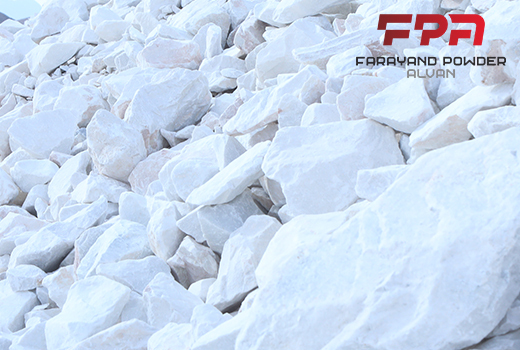Calcium carbonate is a compound found abundantly on earth and in the bodies of certain animals. It is also commonly used in various industries. If you're new to using this substance, you might be wondering what is calcium carbonate. In this article, we'll explore the properties of calcium carbonate and its various industrial applications.
What is ground calcium carbonate?
First, it is better to know what is calcium carbonate and its characteristics of its powder type. In summary, ground calcium carbonate is a versatile mineral that plays a crucial role in various industries, contributing to the development of various everyday products and processes.
Ground calcium carbonate (GCC) is a naturally occurring mineral that can be extracted from limestone, marble, or chalk. It is primarily composed of calcium carbonate (CaCO3) in fine powder or particles and has versatile properties that make it useful in various industries.
What is ground calcium carbonate powder used for?
After knowing what is calcium carbonate powder is, it is better to learn about using this material in daily life and industry. Therefore, let's take a closer look at the calcium carbonate uses.
Uses of calcium carbonate in daily life
Many everyday products are made with calcium carbonate and its powder, making it a standard item in shopping baskets. so uses of calcium carbonate in daily life include:
Toothpaste
Ground calcium carbonate is a commonly used ingredient in toothpaste due to its gentle abrasive properties that effectively remove plaque and stains without harming the enamel.
Chalk
Ground calcium carbonate uses is also used to make plaster. Chalk used for writing on chalkboards and sidewalks is made mainly of calcium carbonate, which creates a smooth surface that can be easily erased.
Antacid Tablets
After you know what is calcium carbonate, you can see the name of this substance among the ingredients of Antacid Tablets on its box. Antacid tablets contain calcium carbonate as an active ingredient, neutralizing excess stomach acid to alleviate heartburn and indigestion.
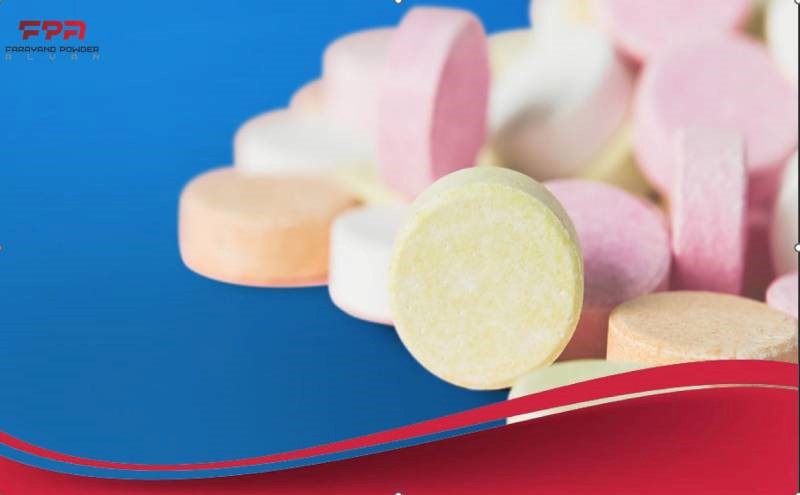
Baking Powder
Calcium carbonate is used as a leavening agent in some baking powders. Combined with acidic ingredients, it produces carbon dioxide gas, causing baked goods to rise.
Paint
In paint production, ground calcium carbonate powder pigment improves durability and opacity.
Uses of calcium carbonate in industry
Calcium carbonate uses in industry are much wider. In many cases, it can be seen that ground calcium carbonate powder is one of the main components of manufacturing products. Uses of calcium carbonate in industry include:
Paper Industry
Calcium carbonate is a commonly used filler material in the paper industry. It improves brightness, opacity, and smoothness while reducing production costs.
Plastics and Rubber
Ground calcium carbonate is added to plastics and rubber products to enhance strength, stiffness, and dimensional stability. It also acts as a filler, reducing material costs.
Construction
In the construction industry, calcium carbonate is utilized as a cement extender, which enhances workability and reduces cost.
Glass Manufacturing
Ground calcium carbonate is used in glass production to improve the clarity and strength of glass products.
Adhesives and Sealants
Adhesives and sealants contain calcium carbonate to improve performance.
Environmental Remediation
In industries dealing with acidic waste, calcium carbonate can neutralize harmful acids, aiding in environmental remediation efforts.
Pharmaceuticals
Calcium carbonate has applications beyond antacids. It can also be used as a pharmaceutical excipient for tablet formulations.
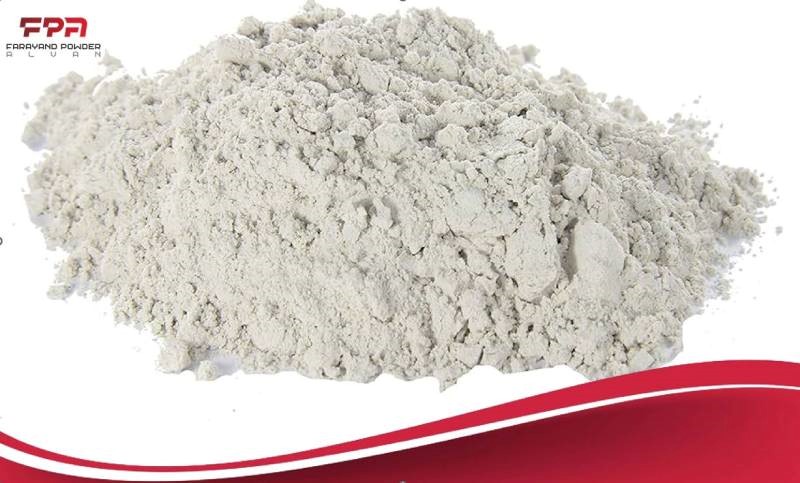
calcium carbonate formula
To use calcium carbonate powder correctly, in addition to knowing what calcium carbonate is, we must also learn about the calcium carbonate formula.
Calcium carbonate, which has the chemical formula CaCO3, is a natural compound with many industrial uses. It consists of one calcium (Ca) atom, one carbon (C) atom, and three oxygen (O) atoms. This compound is naturally present in minerals such as limestone, marble, and chalk, which form the foundation of these rock formations.
Calcium carbonate appears as a white, odorless powder or solid in its pure form. While it is insoluble in water, it dissolves easily in acids, so it is commonly found in antacids used to treat indigestion.
Calcium carbonate benefits
Knowing about calcium carbonate benefits is another important thing about this beneficial substance.
Bone Health
Having sufficient calcium is vital for maintaining strong and healthy bones. Calcium plays a crucial role in bone formation, density, and strength. Many people take calcium carbonate as a dietary supplement to prevent or treat osteoporosis and rickets.
Antacid Properties
Calcium carbonate is a well-known antacid that neutralizes excess stomach acid, relieving heartburn, indigestion, and other gastrointestinal discomforts. It is an effective and affordable solution for digestive issues.
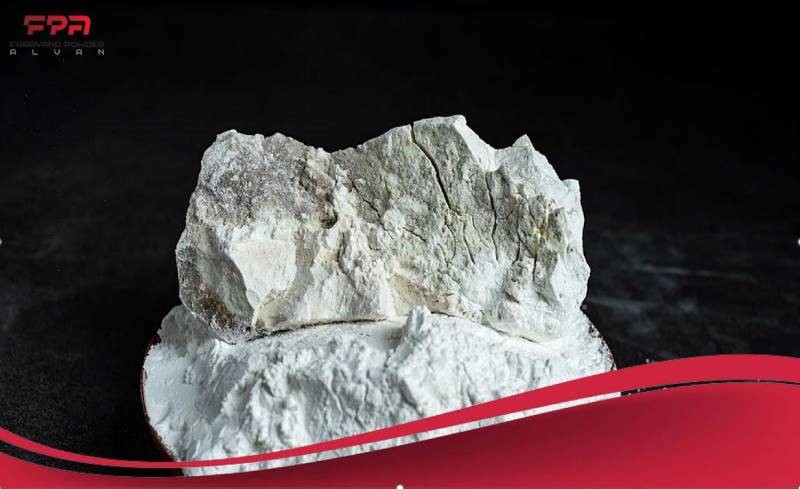
Dental Health
Calcium is essential for dental health as it maintains the strength and integrity of teeth, preventing cavities and tooth decay. Calcium carbonate is used as a critical ingredient in many toothpaste and dental care products.
Soil Amendment
Calcium carbonate is a valuable agricultural soil amendment to improve soil quality. Increasing the pH levels in acidic soils makes them more conducive for a variety of crops, ultimately resulting in better crop yields and increased agricultural productivity.
Fertilizer Ingredient
Plants require calcium for cell walls, root growth, and nutrient absorption. Calcium carbonate is used in fertilizers to support plant health and growth.
Waste Treatment
In wastewater treatment, calcium carbonate can assist in removing contaminants by precipitating impurities and making it easier to purify water before discharge.
What is the difference between GCC and PCC?
After knowing what ground calcium carbonate powder is used for, we need to know the difference between GCC and PCC.
GCC (Ground Calcium Carbonate) and PCC (Precipitated Calcium Carbonate) are different forms of calcium carbonate, each with unique characteristics and applications. Here's a comparison of the two:
Production Method
GCC: Ground Calcium Carbonate is produced by crushing and grinding natural limestone, marble, or chalk, and then classifying it into different particle sizes through a milling process.
PCC: Precipitated Calcium Carbonate is produced by reacting calcium hydroxide (lime) with carbon dioxide to form calcium carbonate, which is then filtered, dried, and processed into different forms.
Particle Size and Shape
GCC: GCC particles are often larger and irregular, giving a granular or powdery texture.
PCC: PCC particles typically have a fine powder-like consistency and uniform shape, resulting in a smoother texture and greater surface area.
Purity
GCC: The presence of impurities or additional minerals in ground calcium carbonate can vary based on the original source material.
PCC: Precipitated calcium carbonate is often preferred for high-purity applications like pharmaceuticals and food products due to its lower impurity content.
Brightness and Whiteness
GCC: Due to natural variations, ground calcium carbonate may have slightly lower brightness and whiteness than PCC.
PCC: Precipitated calcium carbonate can be used for paper coatings and fillers to achieve higher brightness and whiteness levels.
Cost
GCC: Many industries prefer ground calcium carbonate due to its cost-effectiveness.
PCC: Precipitated calcium carbonate is often more expensive due to the chemical processes involved, which can increase production costs.
Applications
GCC: Ground calcium carbonate is widely used in various industries, including construction, agriculture, cement production, and as a filler in paints and plastics.
PCC: Precipitated calcium carbonate is used in premium paper, pharmaceuticals, food, beverages, cosmetics, and specialty chemicals due to its high purity and fine particle size.
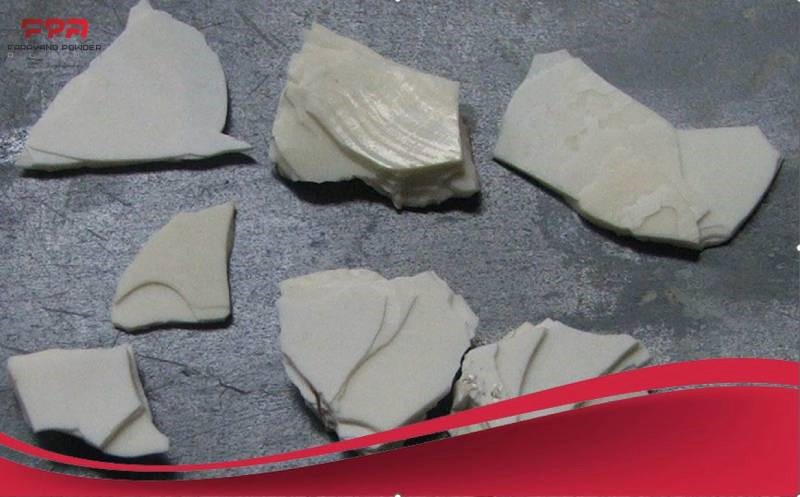
Precautions for storage of ground calcium carbonate powder
Now that we know what is calcium carbonate powder, it is better to get information about the storage conditions of this material. Proper storage is essential to maintain the quality and safety of ground calcium carbonate powder. Keeping the storage environment dry is essential, as moisture can cause clumping and affect the powder's properties.
Airtight containers or bags with moisture-absorbing packets can help prevent moisture from getting in. Temperature control is also crucial, with a recommended range of 10°C to 30°C. Extreme heat or cold can cause chemical changes in the powder, affecting its usability.
Next, it's essential to make safety a priority when working with powder. Keep it away from anything that could ignite it, as the powder can be a fire hazard when dispersed in the air. To minimize the risk of inhalation and protect workers, ensure proper ventilation to prevent the buildup of airborne particles. And don't forget to provide safety gear like dust masks, goggles, and gloves for anyone who handles the powder. This will help protect against potential health hazards.
Finally, it is important to maintain good inventory management practices to ensure the quality and safety of ground calcium carbonate powder. Containers should be clearly labeled with the date of receipt and product information, and a first-in, first-out (FIFO) system should be followed to use older stock first.
Regular inspections of storage containers should be conducted to check for damage or contamination, and any issues should be addressed immediately. Spill cleanup materials should be readily available in case of accidents, and access to the storage area should be restricted to authorized personnel to prevent tampering or unauthorized use. Following these precautions will help maintain the quality of the powder and ensure safety in the storage area.

The best way to buy Ground calcium carbonate
To choose the best calcium carbonate manufacturer, consider the following factors:
Quality: Look for a manufacturer that produces high-quality calcium carbonate. Check their website for information on their manufacturing process and quality control measures.
Certifications: Choose a manufacturer that has certifications like ISO 9001, which ensures that the manufacturer has a quality management system in place.
Reviews: Check reviews of the manufacturer online, including on their website and other online marketplaces like Amazon. Look for positive reviews that mention the quality of their products and customer service.
Price: Compare the prices of calcium carbonate offered by different manufacturers. Keep in mind that the cheapest option may not always be the best quality.
Types of calcium carbonate: Consider the types of calcium carbonate offered by the manufacturer. Calcium carbonate is available in different forms, such as calcium carbonate with vitamin D, calcium carbonate with magnesium, and calcium carbonate with citrate
Bioavailability: Consider the bioavailability of the calcium carbonate offered by the manufacturer. Calcium carbonate supplements tend to be the best value because they contain the highest amount of elemental calcium, but they require stomach acid for absorption
what is calcium carbonate made of?
After knowing what is calcium carbonate, it is better to know what this material is made of. Calcium carbonate is a chemical compound with the molecular formula CaCO3. It is composed of three primary elements: calcium (Ca), carbon (C), and oxygen (O). Regarding its chemical structure, calcium carbonate consists of calcium ions (Ca2+) bonded to carbonate ions (CO3^2-). The carbonate ion comprises one carbon atom centrally bonded to three oxygen atoms.
The calcium component in calcium carbonate is derived from the mineral calcite, often found in the shells of marine organisms, coral reefs, and limestone. These natural sources undergo geological processes such as sedimentation and lithification over time, leading to the formation of calcium carbonate deposits. Additionally, calcium carbonate can be synthetically produced through various chemical methods.
This compound plays a crucial role in various industries and biological processes. It is commonly used as a dietary supplement for its calcium content, as a calcium source in cement and concrete production, and as a key ingredient in manufacturing paper, paints, plastics, and pharmaceuticals. The diverse applications of calcium carbonate highlight its significance in both natural geological processes and human-made products.

Calcium carbonate side effects
Now, in this section, we will check what calcium carbonate side effects are.
Gastrointestinal Issues
Calcium carbonate commonly leads to gastrointestinal side effects, including constipation, gas, and bloating. The reliance on stomach acid for absorption can contribute to these discomforts.
Diarrhea Risk
Conversely, some individuals may experience diarrhea due to the reaction of calcium carbonate with stomach acid, resulting in excess water in the intestines.
Hypercalcemia Concerns
In rare cases, the prolonged use of calcium carbonate may lead to hypercalcemia, characterized by elevated levels of calcium in the blood, manifesting symptoms such as nausea, vomiting, weakness, and confusion.
Medication Interactions
Calcium carbonate can interfere with the absorption of certain medications, such as antibiotics, thyroid medications, and osteoporosis drugs. It is crucial to schedule the intake of calcium supplements separately from these medications to avoid potential interactions.
Allergic Reactions
Individuals may exhibit allergic reactions to calcium carbonate, presenting symptoms like rash, itching, swelling, severe dizziness, or difficulty breathing. Immediate medical attention is necessary if any of these signs occur.
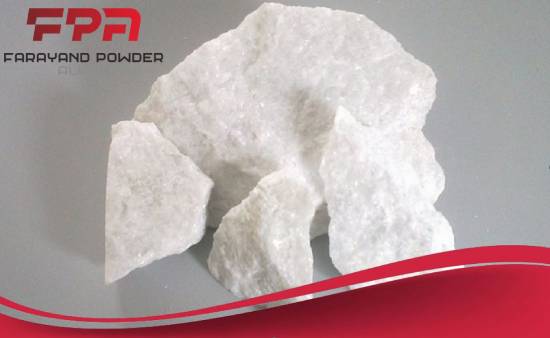
Kidney Stone Risk
Prolonged use of calcium supplements, including calcium carbonate, has been associated with an increased risk of kidney stones in susceptible individuals. Adequate hydration and a balanced diet are essential to mitigate this risk.
Dosage Considerations
Consult a healthcare professional before recommending calcium supplement dosages. Excessive calcium intake, particularly from supplements, may lead to serious health consequences such as hypercalcemia.
Allergic Reactions
Some individuals may develop an allergy to calcium carbonate. Symptoms include rash, itching, swelling, dizziness, or difficulty breathing. Immediate medical attention is necessary if any of these symptoms occur.
Long-term Risks
Long-term use of calcium supplements, especially in high doses, may contribute to developing kidney stones. When necessary, regular monitoring and adjustments to supplementation are essential to balance calcium intake and overall health.
Conclusion
Calcium carbonate powder is a highly versatile and valuable substance that finds use in numerous industries and everyday life. Its chemical makeup, comprising calcium, carbon, and oxygen atoms, makes it an essential compound in nature and a crucial element of many natural processes.
Additionally, humans use calcium carbonate powder for various purposes, from dietary supplements to industrial applications such as in agriculture, construction, and environmental remediation.
With over 30 years of experience in producing various industrial micronized powders and an experienced team with extensive knowledge of pigments, Farayand Powder Alvan Co. has been a reputable supplier in various industries and is honored to provide technical consultation to customers for the best and most economical solutions.

